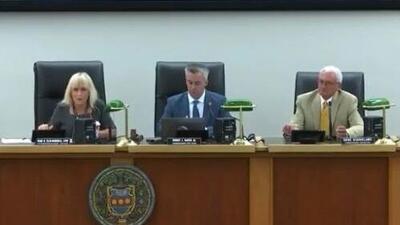Here is what the Bible says
1. Antichrist sets up a winged idol in the Holy Place, which in several places it translates as "Temple", but I would argue should be translated as sanctuary. This could be either in the Holy Place or the Holy of Holies.
2. The Jews begin to offer oblations and sacrifices which then cease when the idol is put in the sanctuary.
3. Amos prophesies that the Tabernacle of David will be raised again at the end of the age in what appears to be the 70th week of Daniel.
4. There is no prophecy anywhere in the Old or New Testament that says a Temple will be built.
5. Instead we are told that the outer court will be given to the nations to trample.
6. We are also told that these are perilous times. That is the context of the prophecy in Amos and also the context of the end of the age in the New Testament.
So how come the Christian theologians do not put this prophecy in Amos into their eschatology? You have to have the tabernacle of David being raised somewhere in your understanding and it is fully missing.
On the other hand we are told in the New Jerusalem there is no Temple. So what happened to it? Not only is there no prophecy that a third temple is built there also is no prophecy that a third temple is destroyed. Also, if you are in perilous times why are you building a temple? Also, why build a temple if from the get go you have to give away most of the property for it?
These are critical questions. But regardless of how you interpret the end times you must agree that Amos clearly says the tabernacle of David will be raised again and that has not happened yet, so that is one of the prophecies of the Old Testament that must be fulfilled. On the other hand if no temple is built there is no prophecy in either Old or New testament that cannot be fulfilled because you have both the Holy Place and the Holy of Holies in the Tabernacle of David. You can measure them and you can put an idol in them.
1. Antichrist sets up a winged idol in the Holy Place, which in several places it translates as "Temple", but I would argue should be translated as sanctuary. This could be either in the Holy Place or the Holy of Holies.
2. The Jews begin to offer oblations and sacrifices which then cease when the idol is put in the sanctuary.
3. Amos prophesies that the Tabernacle of David will be raised again at the end of the age in what appears to be the 70th week of Daniel.
4. There is no prophecy anywhere in the Old or New Testament that says a Temple will be built.
5. Instead we are told that the outer court will be given to the nations to trample.
6. We are also told that these are perilous times. That is the context of the prophecy in Amos and also the context of the end of the age in the New Testament.
So how come the Christian theologians do not put this prophecy in Amos into their eschatology? You have to have the tabernacle of David being raised somewhere in your understanding and it is fully missing.
On the other hand we are told in the New Jerusalem there is no Temple. So what happened to it? Not only is there no prophecy that a third temple is built there also is no prophecy that a third temple is destroyed. Also, if you are in perilous times why are you building a temple? Also, why build a temple if from the get go you have to give away most of the property for it?
These are critical questions. But regardless of how you interpret the end times you must agree that Amos clearly says the tabernacle of David will be raised again and that has not happened yet, so that is one of the prophecies of the Old Testament that must be fulfilled. On the other hand if no temple is built there is no prophecy in either Old or New testament that cannot be fulfilled because you have both the Holy Place and the Holy of Holies in the Tabernacle of David. You can measure them and you can put an idol in them.
Will the "Tribulation Temple" actually be similar to David's original Tabernacle in scope? Rather limited in size?
Does this allow for the outer court being left for the gentiles? Sure maybe. In fact maybe this is a better fit than a brick and mortar Temple given the brevity of the time scale.
Doesn't matter much one way or the other though. More of a technicality than anything else. Because it still is a physical construct on a peculiar location within the confines of the Nation Israel.
[Amo 9:11 KJV]
In that day will I raise up the tabernacle of David that is fallen, and close up the breaches thereof; and I will raise up his ruins, and I will build it as in the days of old:
[Amo 9:12 KJV]
That they may possess the remnant of Edom, and of all the heathen, which are called by my name, saith the LORD that doeth this.
[Amo 9:13 KJV]
Behold, the days come, saith the LORD, that the plowman shall overtake the reaper, and the treader of grapes him that soweth seed; and the mountains shall drop sweet wine, and all the hills shall melt.
[Amo 9:14 KJV]
And I will bring again the captivity of my people of Israel, and they shall build the waste cities, and inhabit [them]; and they shall plant vineyards, and drink the wine thereof; they shall also make gardens, and eat the fruit of them.
[Amo 9:15 KJV]
And I will plant them upon their land, and they shall no more be pulled up out of their land which I have given them, saith the LORD thy God.


